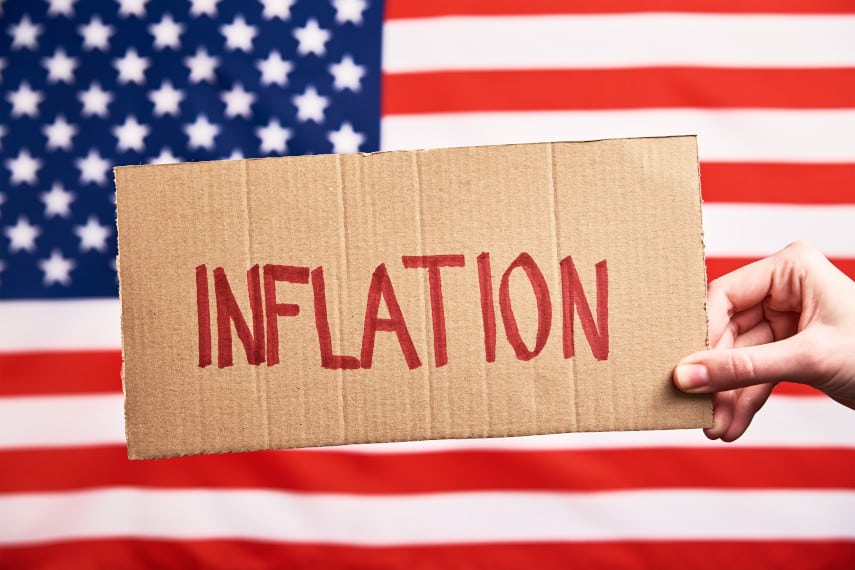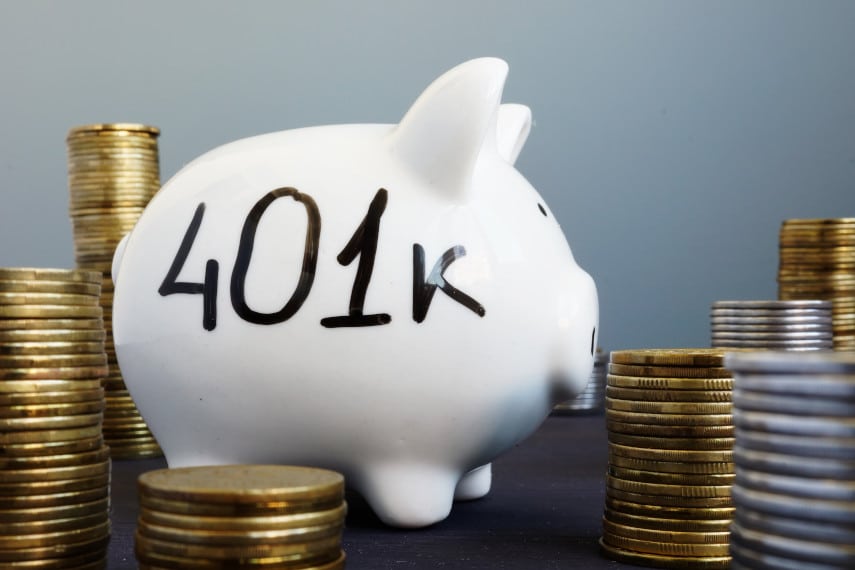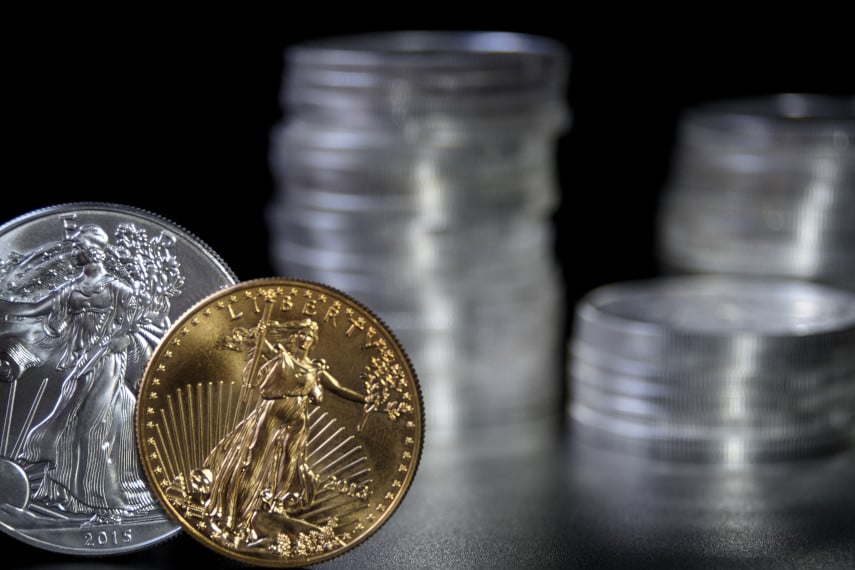
The Bureau of Labor Statistics (BLS) published its latest monthly inflation statistics last week and the results were unsurprising. Inflation pushed once again to the highest levels in over 40 years, coming in at 8.5% year on year. Perhaps even more worryingly, month-to-month inflation is picking up too, coming in at 1.2%, or an annualized rate of over 15%.
All eyes are on the Federal Reserve now as the Fed comes under increasing pressure to get inflation under control. But that’s going to be hard to do without causing a recession or exacerbating one that’s coming. If the Fed isn’t careful, its balance sheet reduction could end up being as damaging or more damaging than the initial balance sheet increase.
Inflation shows no signs of slowing anytime soon, and millions of American households are feeling the pinch. From food to gas to cars to houses, everything is rising in price. Adding to the pain is that wages and salaries haven’t risen commensurately, meaning that real wages have been declining for months.
Investors haven’t been doing too well either, as markets have been down for the year, and it seems like it’s impossible to find investments that can outpace growing inflation. Perhaps you’re looking at your portfolio and wondering how you can defend yourself against the devaluation of your investments. Here are four ways that you can protect yourself and your savings against inflation.
1. Minimize Exposure to Cash
You’ve probably heard the phrase “cash is trash” at some point being said by some famous investor. There’s certainly a time and a place for holding cash, but during a time of high inflation isn’t one of them.
There are some exceptions, of course, such as saving up for a down payment for a house. But in general, holding cash during times of high inflation is a guaranteed way to lose a lot of purchasing power.
You’ll obviously need cash to cover your regular expenses, and to fund your emergency savings. But the higher inflation rises, the less you’re going to want to expose yourself to cash, which will lose value as long as inflation persists.
2. Make Gains That Are Greater Than Inflation
The second key to protecting yourself against inflation is to make sure that your investments are making gains that are greater than inflation. In other words, make sure that you are making real returns, not just nominal gains.
You’ll probably object that this is easier said than done, and with good reason. If everyone knew which assets would outgrow inflation, inflation wouldn’t be such a problem for so many investors.
Hindsight is always 20/20 and foresight never is, but we can look back at periods of high inflation to find examples of assets that traditionally do well during times of high inflation. Among them are precious metals such as gold and silver.
The last experience Americans had with high inflation was during the 1970s stagflation and through the early 1980s, before Fed Chairman Paul Volcker put his foot down and decided to stop inflation that was growing out of control.
Gold and silver’s performance during the 1970s was nothing short of phenomenal. Both gold and silver made average annualized gains of over 30% over the course of the 1970s, at a time when inflation was rising at up to 11%.
For comparison, stock markets only gained about 4% total over the course of the 1970s. And even during the bull market in stocks from 1982-2000, average annualized stock market gains were about 16%, or roughly half the rate of growth gold and silver experienced during the 1970s.
Many investors are banking on gold and silver repeating that same kind of performance during the 2020s, particularly if inflation ends up being here to stay. And if they repeat that performance, those who own gold and silver could benefit tremendously.
3. Own Tangible Goods
For far too long, wealth and money have been conflated. In reality, money is only useful to us if we’re able to use it to purchase things we need or want. It’s the actual physical goods we own that give us real wealth, not paper money or 1s and 0s in electronic bank accounts.
That’s why you’ll often read about people who were able to weather inflationary or hyperinflationary episodes by stocking up on tangibles such as food or furniture. Many turned to barter, trading goods they had for goods they wanted. Others owned precious metals such as gold and silver, or held foreign currencies that were redeemable for gold or silver.
But in almost every case, those who had tangible, physical goods they could fall back on ended up faring better than those whose assets were only financial in nature. So whether you decide to start stocking up on canned food or buying gold coins, owning tangible goods can help protect you against inflation.
4. Hedge Against Inflation
The thing about inflation is that no one knows when it will end, or how long it will last. We’re all accustomed to a little bit of inflation every year, but now inflation seems to be rising out of control. It’s a phenomenon that is unnerving and unsettling, and one with which most investors today are completely unfamiliar.
How does one hedge against inflation? That’s something that most investors haven’t asked for at least 30 years, because runaway inflation just hasn’t been seen as much of a threat or likelihood. Now we’re seeing inflation quickly pushing toward double digits, and investors are quickly having to adjust their behavior.
Here again gold and silver have traditionally been favored as inflation hedges. That’s because they tend to maintain their value in the face of rising inflation. Whereas the dollar has lost 96-98% of its purchasing power since 1913, an ounce of gold purchases as much or more today as it did back then.
If inflation ends up taking hold and becoming a permanent phenomenon, more people are going to start taking inflation hedging into account when making their investment decisions. That could mean that gold and silver once again become popular investment choices.
Do You Own Gold?
With inflation becoming more and more problematic for more people, inflation protection will become an increasingly important investment aim. Thousands of people have already made the decision to start protecting their savings with gold. Thousands more are likely sitting on the sidelines, waiting for the nudge they need to start buying gold.
What will it take for you to decide to buy gold?
Will you wait until inflation reaches double digits? Will you wait until inflation has been entrenched for years? Will you wait until the economy falls into recession? Or will you take steps now to protect your savings with gold before your hard-earned wealth becomes devalued by inflation?
If you want to protect your savings against inflation, call the experts at Goldco to learn how gold can help you. Whether you’re looking to protect the assets in your 401(k), 403(b), TSP, IRA, or similar accounts with a gold IRA, or just looking to buy gold coins to protect your cash holdings, Goldco’s representatives can help you with any questions you have about buying gold. Call Goldco today to learn more about how gold can help safeguard your savings.






